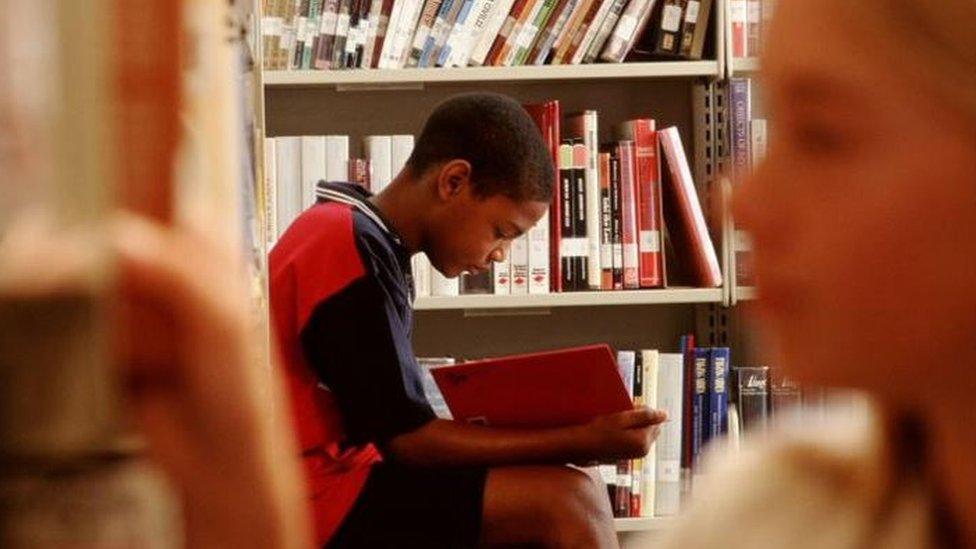Children in England ranked fourth globally for reading
- Published
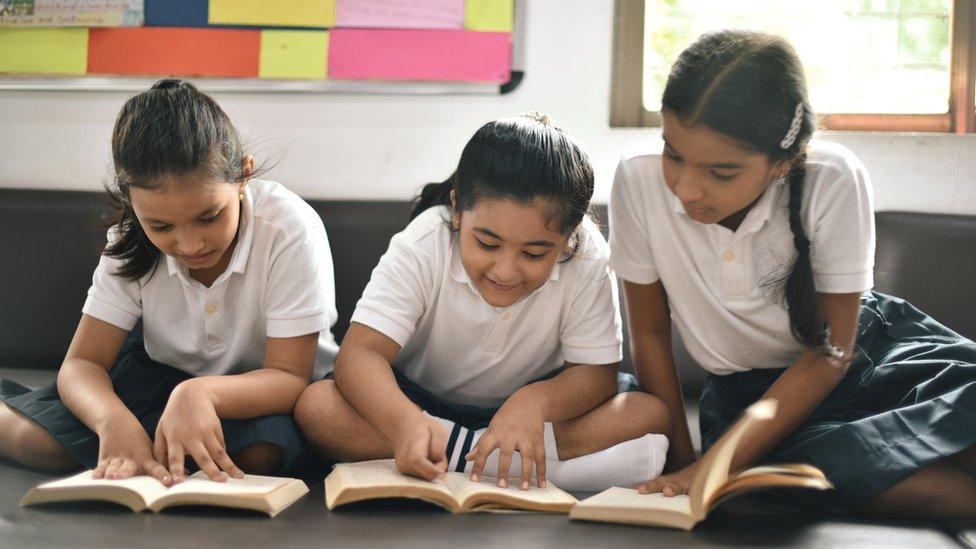
Primary school children in England have ranked fourth in the international rankings for reading.
The latest results in the Progress in International Reading Literacy Study - known as Pirls - saw England's rank jump from eighth to enter the top five.
Based on tests taken every five years, the study places countries in a global education league table.
The Pirls tests are taken by nine and 10-year-olds, normally Year 5 pupils in England, at the end of the school year.
The 2021 testing round assessed nearly 400,000 pupils in 57 countries.
But 14 of those - including Northern Ireland and the Republic of Ireland - delayed testing to the start of the next school year because of disruption caused by the Covid pandemic, meaning the students taking part were older.
The International Association for the Evaluation of Educational Achievement (IEA), which runs the study, said direct comparisons with those 14 countries should be made "with great care".
When included in comparisons, Northern Ireland ranked fifth - up from joint sixth in the previous round of testing.
The IEA said England could be reliably compared with other countries even though it pushed back testing until 2022 to avoid Covid disruption, because it tested the same age group as the other countries.
In those rankings, Singapore scored the highest result, with an average score of 587.
Second was Hong Kong with an average score of 573, followed by Russia (567) and England (558).
Wales and Scotland do not submit results to Pirls but Scotland is set to join the next cycle.
Schools minister Nick Gibb said England's success was aided by government reforms, including a focus on phonics, which teaches children to read using sounds, and to teachers "putting reading at the heart of everything they do".
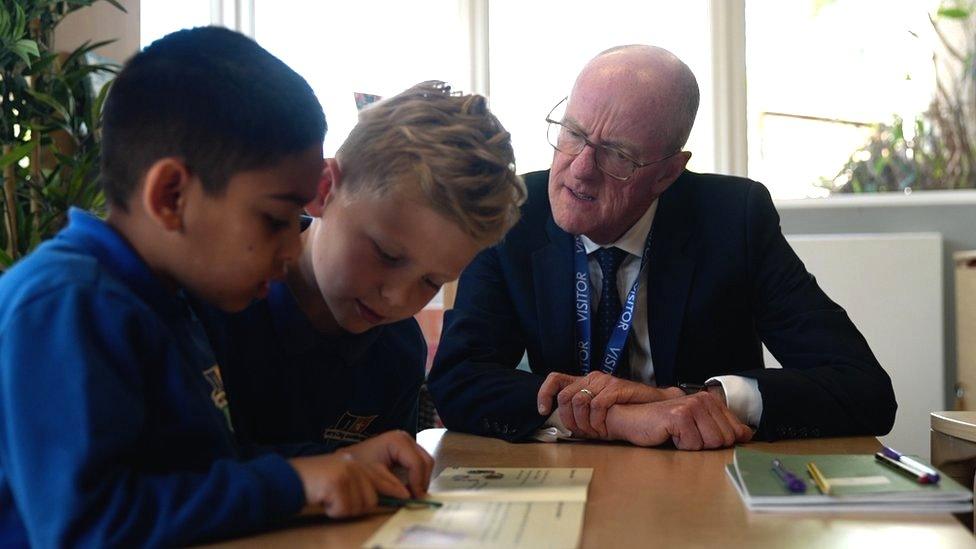
Schools minister Nick Gibb met pupils at a school in Wakefield
Geoff Barton, general secretary of the Association of School and College Leaders (ASCL), said the "excellent results" were "a badly needed piece of good news for an education system that feels beleaguered".
He said the success was testament to the "hard work, skill and dedication of primary school teachers and leaders".
Overall, girls were ahead of boys in their reading achievement in nearly all of the ranked countries, but the gender gap has narrowed in the most recent testing round.
The Pirls results came days after a Year 6 Sats reading paper, which some parents said was so hard it left children in tears.
Mr Gibb said the assessments had to "test a range of ability", but said he would look at the paper because of the concerns.
Last year's Sats results showed overall standards in reading, writing and maths had slipped among Year 6 pupils in England since the pandemic - though individual subject results showed reading levels increased slightly with 74% of pupils meeting the expected standard, up from 73% in 2019.
By 2030, the government wants 90% of children leaving primary school to reach the expected standards in reading, writing and maths.
Related topics
- Published16 May 2023
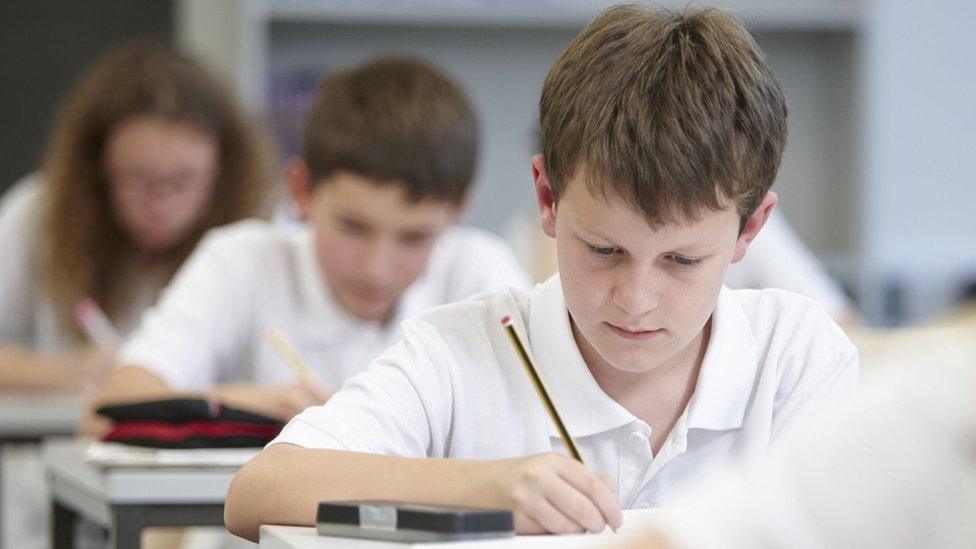
- Published5 July 2022
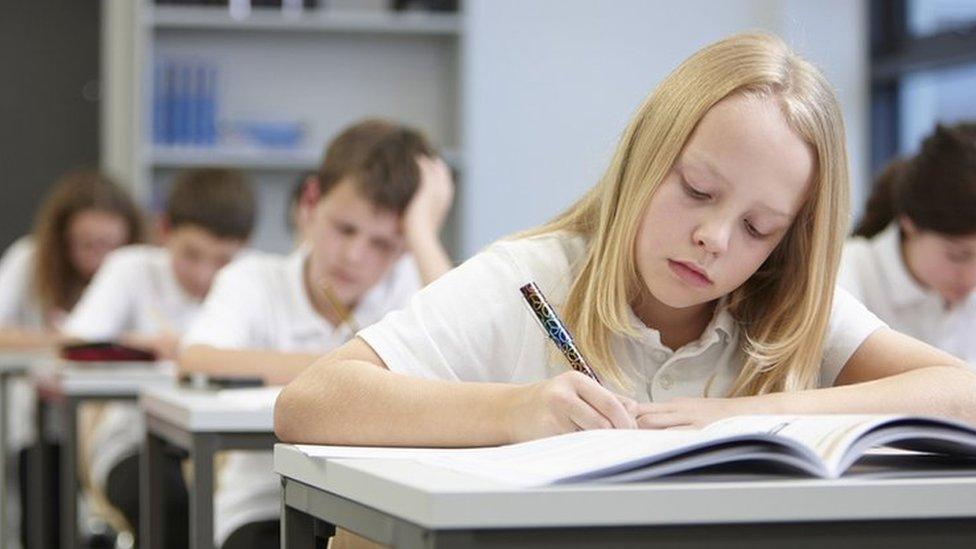
- Published16 May 2023
